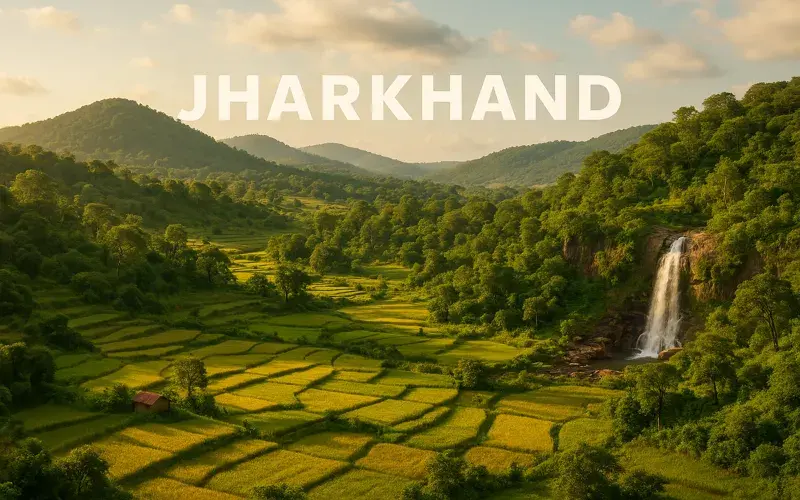


Nestled in eastern India, Jharkhand's history is deeply rooted in its rich tribal traditions and a legacy of resistance. For centuries, the region was inhabited by indigenous tribes, each with unique cultures and lifestyles. During British colonial rule, Jharkhand became a focal point of tribal uprisings against oppression, most notably the Santhal Rebellion of 1855-56. After India's independence, it remained part of Bihar until it achieved statehood in the year 2000. Today, Jharkhand proudly preserves its tribal heritage, celebrating its diverse culture and traditions while simultaneously striving for industrial and economic growth, making it a place where the echoes of the past resonate ...
Nestled in eastern India, Jharkhand's history is deeply rooted in its rich tribal traditions and a legacy of resistance. For centuries, the region was inhabited by indigenous tribes, each with unique cultures and lifestyles. During British colonial rule, Jharkhand became a focal point of tribal uprisings against oppression, most notably the Santhal Rebellion of 1855-56. After India's independence, it remained part of Bihar until it achieved statehood in the year 2000. Today, Jharkhand proudly preserves its tribal heritage, celebrating its diverse culture and traditions while simultaneously striving for industrial and economic growth, making it a place where the echoes of the past resonate in a modern context.
Formation: Jharkhand became a separate state on November 15, 2000, after being carved out of Bihar.
Tribal Population: It has a significant tribal population, with various indigenous tribes like Santhal, Munda, and Oraon.
Capital: The capital city is Ranchi, known for its pleasant climate and scenic beauty.
Mineral Rich: Jharkhand is abundant in mineral resources and is known for its mining activities, particularly coal, iron ore, and mica.
Agriculture: Agriculture is a key economic activity, with rice, wheat, and maize being important crops.
Industrial Growth: The state is witnessing industrial development in sectors like steel, power, and manufacturing.
Culture: Jharkhand celebrates tribal festivals like Sarhul and Karma, showcasing its rich cultural heritage.
Wildlife: It houses several wildlife sanctuaries and national parks, including Betla National Park and Palamau Tiger Reserve.
Languages: Hindi is the official language, while tribal languages are also spoken.
Education: Jharkhand has educational institutions like the Indian School of Mines (ISM) and premier engineering colleges.
Transportation: It has a network of roads and railways, connecting it to major cities in India.
Political Significance: Jharkhand plays a crucial role in Indian politics and has its own elected government.